Public Engagement Faculty Fellowship Community
The PEFF community is composed of individuals across the University of Michigan system who are excited about public engagement and who are interested in creating a more robust, connected public engagement community at the university.
To date, 75 faculty representing 22 different schools, colleges, and units across all three campuses have been selected for the program and have completed the Studio Experience. The program has also partnered with more than 16 partners in designing and running the program, including guest facilitating a number of sessions during the Studio Experience or serving as thought-partners for faculty who continue on to Phase 2: Project Support.
Find out more about this vibrant community of engaged scholars and practitioners below.
Mentor Fellows
 Karyn Lacy
Karyn Lacy
Associate Professor of Sociology, College of Literature, Science, and the Arts, Ann Arbor
Karyn Lacy is a professor in the Department of Sociology and a public intellectual focused on educating academics, legislators and the general public about how race and class intersect to shape opportunity through undergraduate and graduate teaching, academic writing, high-visibility op-eds and anti-racism training.
In addition to an award-winning book and op-eds in the New York Times, USA Today, NBC News, and Vox, among other outlets, Lacy is frequently quoted in the media on issues of race and class.
Lacy is committed to making sociological concepts and findings accessible to the broader public. In these times of intense political conflict, scholars can provide empirical evidence to help people decipher the finer details of public debates.
 Mike Shriberg
Mike Shriberg
Professor of Practice & Engagement, School For Environment And Sustainability, Ann Arbor
Dr. Mike Shriberg is a professor of practice & engagement at the University of Michigan’s School for Environment & Sustainability, and the Director of Engagement at the Cooperative Institute for Great Lakes Research and Michigan Sea Grant. His work focuses on Great Lakes water policy and institutions, climate/energy policy, campus sustainability/carbon neutrality and sustainability leadership/organizational change.
Previously, he was the Great Lakes regional executive director at the National Wildlife Federation (NWF). Major initiatives included advocacy for federal Great Lakes restoration, working toward water affordability and access, preventing the introduction of aquatic invasive species, building climate resilience, combating environmental injustice and engaging urban youth. Prior to NWF, Dr. Shriberg served as the education director at the Graham Sustainability Institute. Before that, he was policy director at Ecology Center, director of Environment Michigan and environmental studies program director and assistant professor at Chatham University.
Shriberg earned his B.S. with honors & distinction in Biology & Society (with a concentration in Environment & Business) at Cornell University and his MS and PhD in Resource Policy & Behavior (as an Erb Doctoral Fellow) at the University of Michigan’s School for Environment and Sustainability.
Fellows
 Pamela Aronson
Pamela Aronson
Professor of Sociology, College of Arts, Sciences, and Letters, UM-Dearborn
Pamela Aronson is a professor of sociology and an affiliate of Women’s and Gender Studies at the University of Michigan-Dearborn. She has numerous publications on gender inequalities, attitudes toward feminism, gender and politics, sexual misconduct, the transition to adulthood, higher education, and identities and the life course. Her book, Gender Revolution: How Electoral Politics and #MeToo are Reshaping Everyday Life (Routledge), was published in 2023. With a research team, she has also been examining sexual harassment in the higher education workplace. Her work has appeared in journals such as Social Forces, Gender & Society, Journal of Cultural Analysis and Social Change, Journal of Youth Studies, Emerging Adulthood, International Journal of Psychology, and Contexts Magazine. Additionally, her research on the transition to adulthood during the pandemic has been featured in BBC Reel, All About America, NBC News, Salon, Vox, NPR’s The Takeaway, KNPR’s State of Nevada, Axios, Southern California Public Radio and Insider. Her recent awards include the University of Michigan-Ann Arbor’s CEW+’s Inspire Award, and the Distinguished Research Award and Distinguished Research Team Award, from the University of Michigan-Dearborn.
 Rachel Bergmans
Rachel Bergmans
Research Assistant Professor of Anesthesiology, Medical School, Ann Arbor
Rachel Bergmans, MPH, PhD, is a research assistant professor in the University of Michigan Department of Anesthesiology, Chronic Pain and Fatigue Research Center (CPFRC) and leads the CPFRC Health Equity Core. As a social epidemiologist and community-engaged researcher, Dr. Bergmans uses quantitative and qualitative approaches to study inequities in pain care and research. Her program of work is focused on putting permanent infrastructure in place to increase diversity, equity and inclusion within pain research, establishing sustainable academic-community partnerships and prioritizing the perspectives of historically underrepresented and marginalized communities in the development of pain therapeutics.
 Deepa Butoliya
Deepa Butoliya
Assistant Professor of Art And Design, Penny W Stamps School of Art And Design, Ann Arbor
Dr. Deepa Butoliya’s distinguished career bridges the realms of design, technology and culture, aiming to foster sustainable, equitable and inclusive societies. Born and educated in India, she moved to the US in 2009, bringing with her a rich background in architecture and industrial design, and a profound commitment to social innovation. Butoliya holds an undergraduate degree in architecture, a master’s in industrial design from the Indian Institute of Technology Kanpur, an MFA in Industrial Design from the University of Illinois at Chicago and a PhD from Carnegie Mellon University.
Her research is a testament to her dedication to integrating ingenuity into design practices, with a focus on the concept of Jugaad—a Hindi term signifying resourcefulness under constraints. This approach not only underpins her doctoral work but also reflects her broader mission to blend local insights with a global perspective in design. Butoliya’s academic and professional journey includes significant contributions to design education at prestigious institutions, collaborative projects with MIT’s Development Lab and impactful research roles in healthcare and user experience design.
Butoliya’s scholarly endeavors extend to critical design practices, particularly from the Global South, contributing to the discourse on speculative and critical design through international exhibitions, symposiums, and workshops. Her work offers pluriversal perspectives on critique in design, demonstrating a commitment to rethinking design paradigms for a more inclusive future.
 Rona Carter
Rona Carter
Associate Professor of Psychology, College of Literature, Science, and the Arts, Ann Arbor
Dr. Carter’s research has contributed to understanding off-time pubertal development, which refers to the experience of developing earlier or later than one’s same-sex peers. Off-time development, a non-normative aspect of puberty, is associated with risks such as depression, anxiety and delinquency. Her work meticulously examines the intricate interplay of biological, psychological and contextual factors influencing off-time pubertal development, as well as the impact of structural and social factors during this developmental transition. In her research, Dr. Carter explores how children comprehend their changing bodies and navigate the social and cultural expectations that shape puberty. One area of focus investigates parallel developmental tasks, including ethnic-racial identity development, and the impact of psychologically threatening experiences such as ethnic-racial and gender discrimination, which can either foster resilience or vulnerability to puberty-linked outcomes. Another area of inquiry examines how interpersonal experiences with adults and peers, such as peer exclusion, and contextual conditions like the racial composition of schools, either facilitate or impede off-time pubertal effects. Dr. Carter utilizes both secondary data analysis and original data collection methods, guided by the central tenets of social development theory, which emphasize that individual development occurs within a social and cultural context perpetually interacting with the developing individual.
 M. Candace Christensen
M. Candace Christensen
Associate Professor of Social Work, School of Social Work, Ann Arbor
M. Candace Christensen’s (they/them) research consists of a critical feminist approach to community engaged, qualitative and arts-based research methodologies that prevent and respond to gendered, racial and anti-LGBTQ+ violence. Their recent work focuses on queer and trans youth development, specifically how organizations can foster joy, a sense of belonging and mutual empowerment for youth. Another key focus is using photovoice for evaluation, as an intervention and as a tool for educating social work students. Christensen also has experience using theatre of the oppressed to construct sexual violence prevention interventions. Christensen holds a BA in Theatre and Literature from the University of Texas at Dallas and an MSW and PhD from the University of Utah.
 Tim Chupp
Tim Chupp
Professor of Physics And Biomedical Engineering, College of Literature, Science, and the Arts, Ann Arbor
Physics professor Tim Chupp was born in Berkeley, CA, and lived in Seattle, New Hampshire and Munich, before university and grad school. Raised in a family of scientists, he was exposed to big questions about nature from an early age, and he was provided with a playground of bicycles, clocks, cars, radios and much more to take apart and sometimes repair. Tim is an experimental physicist who spends as much time as possible in the lab building apparatus to probe the properties of atoms and nuclei. He is devoted to bringing physics to as broad an audience as possible and has been engaged in organizing Saturday Morning Physics and crafting presentations on cutting edge research as well as family friendly science spectacles. Tim has developed several undergraduate courses including the Biophysics gateway “Physics of the Mind and Body,” the take-home version of Everyday Physics – the physics of things we encounter every day – and the hands on “Instrumentation for the Physical Sciences.”
 Emily Dove-Medows
Emily Dove-Medows
Assistant Professor of Nursing, School of Nursing, Ann Arbor
Emily Dove-Medows is a nurse scientist and a certified nurse midwife. Her program of research is focused on ending preventable morbidity and mortality related to racism. Her most recent contributions include introducing qualitative measures of residential segregation and mixed methods studies that explore Black women’s perceptions of neighborhood disorder, discrimination and preterm birth. Her current work explores patient-provider communication about the relationship between racism and health and perceptions of blame during clinical care. She is a two-time graduate of Wayne State University where she earned her Master’s and PhD in nursing, as well as a two time graduate of New York University where she earned Bachelor’s degrees from the Gallatin School of Individualized Study and the Rory Meyers College of Nursing.
 Leonardo Kattari
Leonardo Kattari
Assistant Professor of Health and Human Services, College of Education, Health, and Human Services, UM-Dearborn
Leonardo Kattari is an Assistant Professor of Health and Human Services at the University of Michigan-Dearborn. Their research is specifically centered around transgender and gender diverse (TGD) individuals and allies, exploring civic engagement and its potential for effecting transformative community change. Dr. Kattari has over a decade of practice experience that spans various domains, including health education, health policy, community mobilization and organizing, and advocacy through the art of storytelling. His work is firmly grounded in the principles of community-driven action and data-informed decision-making by striving to advance health equity through civic engagement and transformative systems change.
 Nigel P. Melville
Nigel P. Melville
Associate Professor of Technology and Operations, Ross School of Business, Ann Arbor
Nigel Patrick Melville is associate professor of information systems at the University of Michigan Ross School of Business and Program Chair of Design Science. His main scientific contributions are in the information systems field of technology-enabled change, seeking to explain how organizations employ digital technologies to enhance operations and achieve strategic objectives while minimizing risk. Specific areas of study include digital transformation and innovation, AI value and risk, and digital systems for energy and carbon management.
Professor Melville’s research has received more than 10,000 citations, motivating extensions and new research streams, and receiving highly cited notations (top 1%) and a best paper award from the Association for Information Systems (AIS). His research has been supported by grants from the Society for Information Management CIO Advanced Practices Council, the University of Michigan’s MCubed, and the Information Systems Executive Forum. He has served as a Special Sworn Status researcher of the U.S. Census Bureau and is a Distinguished Member of the AIS.
His service to the scientific community includes editorial board membership, chairing tracks at leading conferences and serving as a keynote speaker at global academic conferences. Professor Melville consults for large organizations as they seek to digitally transform for leadership in the fourth industrial revolution.
 Rosemary J. Perez
Rosemary J. Perez
Associate Professor of Education, Marsal Family School of Education, Ann Arbor
Dr. Rosemary (Rosie) Perez is an associate professor in the Center for the Study of Higher and Postsecondary Education in the Marsal Family School of Education. Her scholarship focuses on undergraduate and graduate student learning, development, and success with the aim of creating more equitable and humanizing campus environments. Her research has been funded by the National Science Foundation, Spencer Foundation, Susan Thompson Buffett Foundation and ACPA-College Student Educators International (ACPA), and often involves research-practice partnerships.
Previously, Dr. Perez was an assistant professor at Iowa State University and a student affairs educator at the University of San Francisco and American University. Her teaching, research and praxis reflect her experiences as a practitioner and her commitment to social justice and inclusion. Her contributions to higher education and student affairs were recognized with a 2017 ACPA Emerging Scholars Award and 2020 Diamond Honoree Award. Dr. Perez has also been recognized for her contributions to her campus communities and received the 2016 Iowa State University Multicultural Student Affairs Faculty/Staff Change Agent Award, 2019 Iowa State University College of Human Sciences Early Achievement in Teaching Award and 2022 University of Michigan School of Education Faculty Diversity, Inclusion, Justice, and Equity Award.
 David Potter
David Potter
Francis W Kelsey Collegiate Professor of Greek and Roman History, Arthur F. Thurnau Professor, Professor of Greek and Latin, College of Literature, Science, and the Arts, Ann Arbor
David Potter is Francis W Kelsey Collegiate Professor of Greek and Roman History and Arthur F. Thurnau professor in the Department of Classical Studies at the University of Michigan. His interests include the management of large organizations and failures in the management of the same. He has written extensively on the history of the Roman Empire, and his books have been translated into a number of foreign languages, including Chinese, Japanese, German and Spanish. His recent book, Disruption: Why Things Change, traces radical change from the Roman Empire into the twenty-first century. His forthcoming book on Julius Caesar makes extensive use of Caesar’s own writings to establish his principles of management to explain how he created an organization which enabled him to destroy the democratic government of the Roman state. Potter routinely teaches large classes on sport, comparing ancient and modern institutions, and warfare, exploring how modern concepts of strategic thinking parallel those in ancient authors like Thucydides. He has participated in a number of podcasts and television programs, and is committed to reaching non-specialist audiences with the results of his specialist research.
 Jeremy Wright-Kim
Jeremy Wright-Kim
Assistant Professor of Education, Marsal Family School of Education, Ann Arbor
Dr. Jeremy Wright-Kim is an assistant professor in the Center for the Study of Higher and Postsecondary Education at the Marsal School of Education. His research – focusing primarily on postsecondary finance, financial aid, and public policy more broadly – interrogates the intricacies and inequities of the higher education policy landscape and its impacts on our most historically underserved and disenfranchised institutions, students and communities. Utilizing a range of qualitative and critical quantitative approaches, his current projects include college access for Native youth, student debt, college promise programs and community college finance.
Mentor Fellows
Simone M. Charles
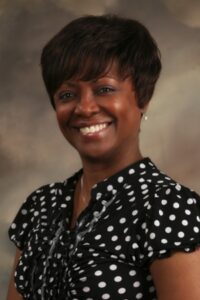
Clinical Associate Professor, School of Public Health, Ann Arbor
Dr. Simone Charles is a Clinical Associate Professor and Associate Chair for Curriculum in the Department of Environmental Health Sciences. She also serves as the Director of Pathways to Public Health at School of Public Health. Her environmental health practice intersects exposure science, translational research, and health literacy to promote environmental justice and health equity. She has several years’ experience working with academic-practice-community partnerships to develop and implement programmatic interventions to address environmental health disparities in under resourced rural and urban communities. An example practice project includes using citizen science to bolster capacity for youth-led research and action to understand and address environmental justice impacts in communities. In addition, training the next generation of public health professionals with an emphasis on research translation and health equity, has long been a key tenant of her work. She defines a successful scholar as one who is deeply committed to, and thriving in doing, their purposeful mission. Participation in the Public Engagement Faculty Mentor Fellowship program would facilitate access to the tools, collaborations, and dedicated space for her to continue to advance her public health mission and allow her to share with others to bolster their work as well.
 Antonio C. Cuyler
Antonio C. Cuyler
Professor, School of Music, Theatre, & Dance, Ann Arbor
Antonio C. Cuyler (He), Ph.D. is Professor of Music in Entrepreneurship & Leadership in the School of Music, Theatre & Dance (SMTD) at the University of Michigan. He is the author of Access, Diversity, Equity, and Inclusion in Cultural Organizations: Insights from the Careers of Executive Opera Managers of Color in the U. S. and editor of Arts Management, Cultural Policy, & the African Diaspora. He also founded Cuyler Consulting, LLC, a Black-owned arts consultancy that helps cultural organizations maximize their performance and community relevance through access, diversity, equity, and inclusion (ADEI).
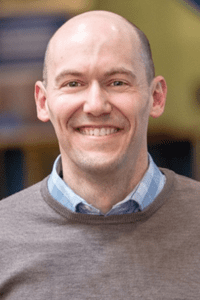 Justin Heinze
Justin Heinze
Associate Professor, Health Behavior & Health Education, School of Public Health, Ann Arbor
Dr. Heinze’s research investigates how schools influence disparities in violence and other risk outcomes from an ecological perspective that includes individual, interpersonal, and contextual influences on development. He is particularly interested in structural features of school context and policy that perpetuate inequity in violence and firearm outcomes, but also how these institutions can serve as a setting for intervention.
Laura Napier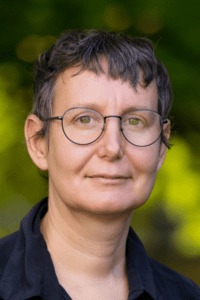
Lecturer I, Stamps School of Art & Design, Ann Arbor
Laura Napier is a socially engaged artist producing projects exploring behavior, sociology, and place through participatory and collaborative performance, moving image, photography, and installation.
Napier’s practice has been supported by the Puffin Foundation, Houston Arts Alliance, Transart Foundation for Art & Anthropology, and the Creative Climate Leadership program led by Julie’s Bicycle, among others. Napier recently presented work at Public Space One in Iowa City, the Experiences of Oil conference at the Stavanger Art Museum in Norway, and the Solar Studios at Rice University in Houston. She studied at Cooper Union and holds an MFA from the Milton Avery Graduate Program of the Arts at Bard College. She lectures with the Stamps School of Art & Design at UM.
Napier’s Michigan connections include organizing Happy Valley, a social performance of the Flint Male Chorus and the Flint City Wide Choir with the Flint Public Art Project outdoors at Chevy-in-the-Hole in Flint, Michigan, before the water crisis in 2013. That same year she brought her grandfather’s family business, Motor City Window Cleaning Co., back to life in Memphis, Tennessee as a collaborative performance with local artists during Memphis Social, an apexart Franchise exhibition. You can find out more at https:/lauranapier.com.
Fellows
Justin Colacino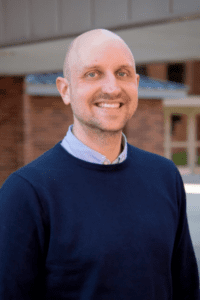
Associate Professor, School of Public Health, Ann Arbor
Dr. Justin Colacino is an Associate Professor of Environmental Health Sciences, Nutritional Sciences, and the Program in the Environment at the University of Michigan. His research focuses on understanding how environmental pollutants impact the development of chronic diseases like cancer and Alzheimer’s disease. He also works to develop new strategies to prevent cancer in high risk individuals. His research group combines wet lab bench work with epidemiological cohort studies and clinical trials to translate findings from experimental systems to the population level.
Paul Fleming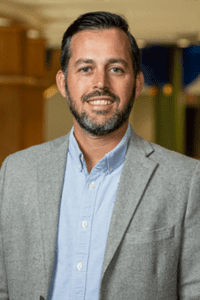
Assistant Professor, School of Public Health, Ann Arbor
Dr. Fleming focuses his work on the root causes of racial health inequities and strategies to address them. He conducts community-based participatory research focused on the health needs of Latinx immigrants in Michigan and examines how to best integrate anti-racist principles into public health training and practice. He also is a member of Public Health Awakened and contributes to community organizing efforts to promote health through social change.
Cynthia Gabriel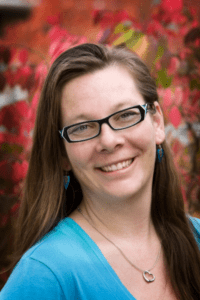
Lecturer IV, College of Literature, Science, and the Arts, Ann Arbor
Cynthia Gabriel is the author of two books about birth and postpartum recovery. She is passionate about bringing the science of reproductive health to bear on the lives of everyday people. Her research focuses on cultural aspects of reproduction and health inequalities.
Shelie Miller 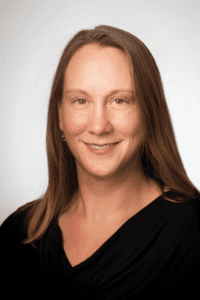
Jonathan W. Bulkley Collegiate Professor of Sustainable Systems, School for Environment and Sustainability, Ann Arbor
Shelie Miller is a professor at the School for Environment and Director of the Program in the Environment. An environmental engineer by training, her research is highly interdisciplinary, with a focus on quantifying the environmental impacts of new products at the intersection of technology and human behavior. She is interested in science communication, media engagement, and working more closely with local organizations to help translate sustainability research into products that are accessible to the general public and help improve decision-making surrounding complex environmental issues.
Alireza Mohammadi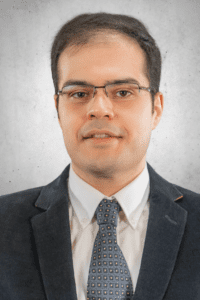
Assistant Professor, College of Engineering and Computer Science, Dearborn
Alireza Mohammadi is an Assistant Professor in the Electrical and Computer Engineering Department at the University of Michigan–Dearborn. He is the principal investigator of the Robotic Motion Intelligence (RMI) Lab, which he established in 2018. He received the Ph.D. degree in Electrical and Computer Engineering from the University of Toronto, Canada in 2016. During his Ph.D. studies, he collaborated with the Norwegian Centre for Autonomous Marine Operations and Systems (a Centre of Excellence for research in Norway) on locomotion control of ground and swimming snake robots. In 2011, he received the Masters degree from the University of Alberta, Canada where he was with the Telerobotic & Biorobotic Systems Laboratory. He joined the Locomotor Control Systems Laboratory at the University of Texas, Dallas, as a Postdoctoral Research Associate in November 2016, where he was using neuromechanical principles in the context of feedback control theory to design wearable robot control systems. His research interests include robotics, control systems, and cyber-physical systems.
Laura Power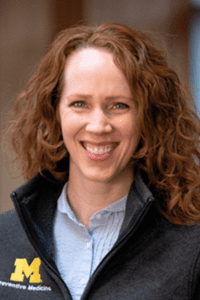
Clinical Associate Professor, School of Public Health, Ann Arbor
Dr. Power’s work is focused on enhancing public health capacity through experiential learning opportunities for students, through needs-based workforce development opportunities for practitioners, and by fostering partnerships between our school, practice-based organizations, and community members. She does this through her work in the Practice Office, through funded-projects focused on the public health workforce, and through teaching professional development and leadership courses. She started her career as an infectious disease physician, working in the hospital and clinic setting and with a focus on hospital infection prevention. This inspired her interest in developing a deeper understanding of the connections between public health and medical practice. She completed additional training in preventive medicine, with a focus on epidemiology. And now she enjoys connecting medicine with public health, research with applied practice, and students with professionals through experiential learning and workforce development. Dr. Power’s main focus right now is teaching and training to support public health capacity; and she continues to have a special interest in infectious disease epidemiology and prevention.
Rebeccah Sokol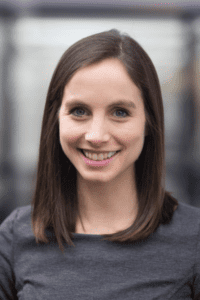
Assistant Professor, School of Social Work, Ann Arbor
Dr. Rebeccah Sokol is social work and public health scholar dedicated to youth safety and well-being. She is currently an Assistant Professor at the University of Michigan School of Social Work and an affiliated faculty member of the Institute for Firearm Injury Prevention. Dr. Sokol’s research program is centered around identifying effective strategies to alleviate youth adversity and trauma, with a particular focus on preventing child maltreatment, youth violence involvement, and firearm injury. Additionally, she investigates how to promote positive social determinants of health to improve safety and health outcomes for youth. For many such projects, she collaborates with community partners ranging from community-based organizations, to school systems, to local and state government agencies.
Dr. Sokol’s research skills include primary data collection and analysis, in addition to the use of longitudinal, quasi-experimental, and multi-level quantitative methods to analyze administrative and nationally representative datasets. Dr. Sokol has secured federal funding from the Centers for Disease Control and Prevention (CDC) and the National Institutes of Health (NIH) for her research, and she is committed to effectively disseminating research results back to communities.
Matthew Solomon
Professor, College of Literature, Science, and the Arts, Ann Arbor
Matthew Solomon is a professor in the Department of Film, Television, and Media at the University of Michigan. He is the author of Disappearing Tricks: Silent Film, Houdini, and the New Magic of the Twentieth Century, winner of the Kraszna-Krausz award for best moving image book, of a monograph on Chaplin’s The Gold Rush for the BFI Film Classics series, and, most recently, of Méliès Boots: Footwear and Film Manufacturing in Second Industrial Revolution Paris. He is the editor of Fantastic Voyages of the Cinematic Imagination: Georges Méliès’s Trip to the Moon and of the late Madeleine Malthête-Méliès’ Magnificent Méliès: The Authorized Biography, translated by Kel Pero. He co-edits the “Cinema Cultures in Contact” book series for University of California Press and the “Out of the Archives” book series for University of Michigan Press.
Tian An Wong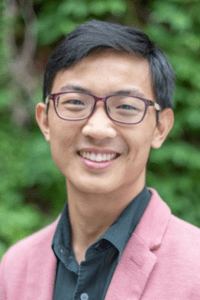
Assistant Professor, College of Arts, Sciences, and Letters, Dearborn
Tian An Wong is an assistant professor of mathematics in the Department of Mathematics and Statistics at the University of Michigan-Dearborn. Their work has variously involved distinct fields such as number theory and the quantitative analysis of policing.
Amy M. Yorke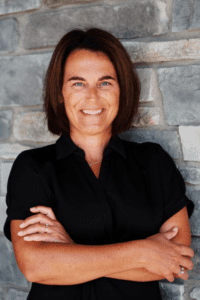
Associate Professor, College of Health Sciences, Flint
Dr. Amy Yorke is an Associate Professor and Associate Director for Community Engagement in the Physical Therapy Department at the University of Michigan-Flint. She received her B.S. in Health Science and Master’s Degree in Physical Therapy from the University of Michigan-Flint and her PhD in Interdisciplinary Health Sciences from Western Michigan University and is is Board Certified in Neurologic Physical Therapy (ABPTS). Dr. Yorke oversees the physical therapy services at HEART, a student led pro bono clinic at UM-Flint. As the team lead of the Integrating KNOWledge Translation (iKNOW) lab, Dr. Yorke research interests are in translating evidence-based practices to clinical, community, and academic settings in order to improve patient and student learner outcomes. In addition, Dr. Yorke is interested in further understanding interprofessional collaborative practice in both education and in the clinic.
Yunus Zeytuncu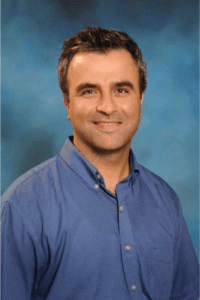
Professor, College of Arts, Sciences, and Letters, Dearborn
Yunus earned his Ph.D. from the Ohio State University in 2010. He was a visiting assistant professor at Texas A&M University before joining the University of Michigan-Dearborn in 2013. In addition to his regular administrative, teaching, and research activities, Yunus coordinates the NSF REU Site in Mathematical Analysis and Applications, directs the Center for Mathematics Education, and mentors at the Polymath Jr. Summer Program. In 2019, he received the Distinguished Teaching Award from the Michigan Section of the Mathematical Association of America (MAA). In 2021, he was selected the Michigan Professor of the Year by the Michigan Association of State Universities.
Mentor Fellows
Mark Clague

Professor of Music & Associate Dean for Collaborations and Partnerships, School of Music, Theatre, & Dance Ann Arbor
Mark Clague, Ph.D., serves as Professor of Musicology, Arts Leadership, and American Culture at the University of Michigan School of Music, Theatre & Dance, where he is also Associate Dean of Collaborations and Partnerships. His research, teaching, and public engagement work focuses on music in the United States, its artistic and economic history, its commercial and non-profit institutions, and its impact on formations of community through the politics of song. His research on the U.S. national anthem has led to publications, such as the article “‘This Is America’: Jimi Hendrix’s Star-Spangled Banner Journey as Psychedelic Citizenship”(2014), the recording Poets and Patriots: A Tuneful History of “The Star-Spangled Banner” (2014), the Star Spangled Songbook (2015, and the forthcoming book O Say Can You Hear?: A Cultural Biography of “The Star-Spangled Banner” (W.W. Norton, June 2022). His work has sparked collaborations with the Smithsonian Museum of American History, Los Angeles Grammy Museum, Gerald R. Ford Presidential Library, the University of Michigan Museum of Art, and in recital with baritone Thomas Hampson at the Library of Congress. His anthem commentary is available at starspangledmusic.org and through The Conversation and CNN.com. He posts to Twitter as @usmusicscholar.
Deborah Gordon-Gurfinkel
Lecturer II & Founding Director of Telling It, Literature, Science, and the Arts, Ann Arbor
Deb Gordon-Gurfinkel is the Founding Director of Telling It, a trauma-informed and healing centered program for youth that draws from the best practices of social work filtered through the expressive arts. Deb is also a lecturer at the Residential College where she teaches two engaged learning courses, Community Empowerment through the Arts and Advance Practice in Community Engagement through the Arts. A native of Great Britain, Deb completed a Bachelor’s in Education at London’s Central School of Speech and Drama and worked as a middle and high school teacher before moving to San Francisco in 1986. Deb shifted the focus of her practice to using the expressive arts in support of the healthy social emotional development of children experiencing homelessness. She received an award from the National Endowment for the Arts to continue this work. After moving to Ann Arbor in 1999, Deb founded Telling It and was hired as a lecturer at UM in 2002 through the Arts of Citizenship program. Telling It has been a finalist for the Roslyn and Jimmy Carter Award, semi-finalist for the President’s Committee on the Arts and Humanities’ Coming Up Taller Award, and Deb has received the Ginsberg Award for Outstanding Faculty Member.
Melanie Manos
Collegiate Lecturer & Lecturer IV, Engagement Coordinator, Stamps School of Art & Design, Ann Arbor
Melanie Manos is an interdisciplinary artist working in performance, lens-based media and installation, utilizing her body in absurd and precarious actions to convey everyday implications of economic insecurity and gender bias. She’s a 2021 Knights Art Challenge Grant recipient, a Kresge Arts in Detroit 2020 Fellowship Awardee, a University of Michigan 2021-22 Center for World Performance Studies Faculty Fellow, and Institute of Humanities 2020 Summer Faculty Fellow for her project Visualizing Women’s Work. Manos has performed and exhibited internationally including in England, Canada (Museum London), Belgium, and Japan (The Museum Of Contemporary Ceramic Art) as well as in the US at venues including Zuckerman Museum/Atlanta, Spanish Kitchen/Los Angeles, and Simone DeSousa Gallery/Detroit. Manos holds a BA from UCLA, and an MFA from University of Michigan Stamps School of Art & Design where she has been teaching engagement courses for over a decade, including international engagement in Japan. Manos collaborates with Sarah Buckius as The ManosBuckius Cooperative focusing on labor and the human/technology interface. MBC videos have played in video/electronic festivals globally in over 22 countries, most recently in Nenagh, Ireland, for the town’s 800th anniversary. You can find her on Instagram @melanie_manos, at www.melaniemanos.com, and at www.manosbuckiuscooperative.com.
Craig Regester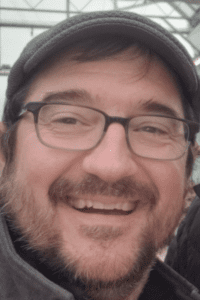
Lecturer II & Associate Director of Semester in Detroit, Literature, Science, and the Arts, Ann Arbor
Craig Regester has been engaged in Detroit community-based work for 30 years. He first worked in the field of youth development in the 1990s with Detroit organizations: SOSAD, La Sed, and Alternatives for Girls. He earned his Masters of Arts in Teaching from Wayne State University; his thesis explored the lack of independent politics (or third-parties) in public secondary civics education. Craig has been involved with Detroit-based labor organizing (and solidarity work) since the late 1990s: first as an organizer with the American Federation of Teachers to win recognition for graduate student employees at Wayne State; then as an organizer with the Southeast Coalition on Occupational Safety and Health (SEMCOSH); and, for the past two years, he has been a steward and active union member with the Lecturer Employees Organization (LEO). Since 2008, Craig has worked as the administrative director and as a lecturer for the U-M Semester in Detroit Program – an immersive urban studies experience that enables undergraduate students (from all three U-M campuses) to develop transformative tools for community-building through reciprocal engagement and co-learning with Detroiters and Detroit community organizations. Craig is the lead faculty member for the popular U-M mini-course, Detroiters Speak, which won a Provost award for Innovative Teaching in 2017. Craig was also instrumental to the launching of the pilot UM-Detroit Connector Bus in 2013 (now the D2A2 service) which has greatly improved public transportation options between Ann Arbor and Detroit.
Fellows
Patrick Barry
Clinical Assistant Professor & Program Director of Writing and Academic Support Law School, Ann Arbor
Patrick Barry is a Clinical Assistant Professor and the Director of Digital Academic Initiatives at the University of Michigan Law School, as well as a Visiting Lecturer at the University of Chicago Law School and the UCLA School of Law. He is the author of several books on advocacy and has recently launched a series of online courses called “Good with Words” on the educational platforms Coursera and FutureLearn. Among Professor Barry’s teaching awards are the Wayne Booth Prize for Excellence in Teaching, the Provost’s Innovation in Teaching Prize, and the Outstanding Research Mentor Award. He has also served as the law school’s Faculty Ally for Diversity and been selected as a Faculty Fellow by the Office of Diversity, Equity, and Inclusion’s Center for Educational Outreach. A member of the California bar who regularly partners with law firms, government agencies, and nonprofit organizations, he is currently working on a project that uses immersive technology to help lawyers and other professionals give and receive more effective feedback. He has a Ph.D. in English in addition to a law degree, and in college he was an All-American soccer player.
Jacinta Beehner
Professor of Psychology and Anthropology, Literature, Science, and the Arts, Ann Arbor
Jacinta C. Beehner is a Professor in the Department of Psychology and in the Department of Anthropology at the University of Michigan. She is broadly interested in hormones and behavior, specifically as they relate to reproductive success. She founded and currently directs two field sites focused on wild primates: the Simien Mountains Gelada Research Project in Ethiopia (studying geladas) and the Capuchins at Taboga Research Project in Costa Rica (studying white-faced capuchins). She also directs two hormone laboratories – one at the University of Michigan (Beehner Endocrine Laboratory) and one at the Capuchins at Taboga field site (TREX Endocrine Laboratory).
Margit Burmeister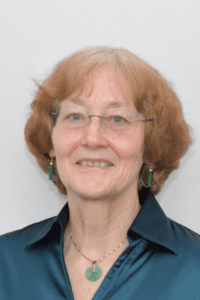
Associate Chair, Department of Computational Medicine and Bioinformatics; Program Director, Bioinformatics Graduate Program; Professor of Human Genetics, Medical School, Ann Arbor
Margit Burmeister has trained in Germany and Israel in Biochemistry and Genetics. As a postdoc at the University of California in San Francisco, she helped develop a method used in the Human Genome Project. Her research at Michigan focuses on simple Mendelian as well as more complex brain disorders. Her lab identified more than a dozen genes involved in neurological rare disorders, and established the importance of gene x environment interactions in depression and addictions. She directs the Bioinformatics Graduate Program at Michigan, and her lab has hosted students from Germany, Pakistan and China. She has worked or taught in Germany, Turkey, Israel and China. She is passionate to interest more people in their own genetic data.
Ashley Cureton
Assistant Professor of Social Work, School of Social Work, Ann Arbor
Ashley Cureton is an Assistant Professor in the School of Social Work and School of Education at the University of Michigan. She explores the educational and mental health needs and outcomes of refugee and migrant children and youth and their families in the U.S. and abroad. She seeks to understand how displacement and exploitation impact their overall academic and social development, sense of belonging, and cultural identities. Dr. Cureton’s scholarship builds on over a decade of research and practice focusing on child and adolescent development among refugee and migrant populations in global contexts like India, Jordan, South Africa, Morocco, Peru and Ecuador, to name a few. Dr. Cureton served as a Research Fellow through the United States Department of State in Istanbul, Turkey, working with Iraqi and Syrian refugee youth in school and community settings. She is currently a Council on Social Work Education (CSWE) Scholar in Global & Intercultural Competence and a former recipient of the Group for the Advancement of Doctoral Education (GADE) in Social Work Leadership and Service Award. Dr. Cureton completed her PhD in Social Work at the University of Chicago and a Provost’s Postdoctoral Fellowship at the Johns Hopkins University School of Education.
Charles H.F. Davis III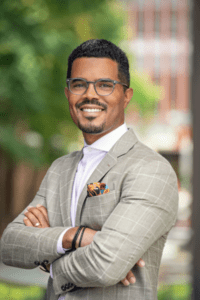
Assistant Professor of Education, Marsal Family School of Education, Ann Arbor
Dr. Charles H.F. Davis III is a third-generation educator committed to the lives, love, and liberation of everyday Black people. He is currently an assistant professor in the Center for the Study of Higher and Postsecondary Education and founder and director of the Campus Abolition Research Lab. Dr. Davis teaches courses and conducts research on issues of race and racism, systemic oppression, and structures of domination in education and its social contexts. Dr. Davis has been nationally-recognized as a 2020 Emerging Scholar by Diverse Issues in Higher Education and was awarded the 2021 National Academy of Education/Spencer Postdoctoral Fellowship. Dr. Davis maintains an active ethnographic research program concerned with understanding digitally-mediated student activism, political engagement, and social movements at the intersections of campus and community. Dr. Davis is co-editor of Student Activism, Politics, and Campus Climates in Higher Education (Routledge), The Black Lives Matter Reader (University of California Press), and has produced nearly three dozen scholarly publications. Dr. Davis’ work has been featured by Academe, The Boston Globe, Change Magazine, Chronicle of Higher Education, Diverse Issues in Higher Education, EdSurge, EdWeek, Inside Higher Ed, Los Angeles Times, and other national and local media outlets.
Sam Hansen
Mathematics & Statistics Librarian, U-M Library, Ann Arbor
Sam Hansen (They/Them) is the Mathematics & Statistics librarian for the University of Michigan, Ann Arbor, a mathematics storyteller, and the producer of the podcast Relatively Prime: Storytelling in the Mathematical Domain. Their research is in the dynamics of citation aging, with a particular focus on the differences in citation behavior between mathematical and natural sciences, and how and why the world of mathematics needs to tell more stories. They also work as a database developer for the digital humanities projects PodcastRE and Media History Digital Library. When not working or podcasting Sam spends as much time as possible cycling and nerding out about coffee (decaf only).
Irene Hwang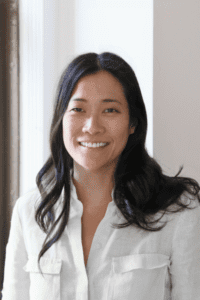
Assistant Chair of Architecture & Lecturer IV in Architecture, Taubman College of Architecture & Urban Planning, Ann Arbor
Irene is assistant chair of architecture at the Taubman College of Architecture and Urban Planning, where her research and teaching studies public opinion and architectural literacy in order to understand how to shift the discipline and profession of architecture from a rarefied good and service into a basic human right. She serves as PI of the Equity in Architectural Education Consortium (EAEC), which leverages various resources and forms of capital to collectively reduce inequities and disparities for current students of color and other underrepresented groups in undergraduate, graduate, and professional programs of architecture. Irene is co-founder of the UM-Public Design Corps, which offers University of Michigan students the opportunity to engage in socially-driven design through mission-driven partnerships.
Donald Peurach
Professor of Education, Marsal Family School of Education, Ann Arbor
Donald J. Peurach is a Professor of Educational Policy, Leadership, and Innovation in the University of Michigan’s School of Education. He is also a Senior Fellow at the Carnegie Foundation for the Advancement of Teaching. Dr. Peurach’s research, teaching, and outreach focus on the organization and management of education systems, with a particular focus on network-based continuous improvement. He is currently co-leading the establishment of the EdHub for Community and Professional Learning, the School of Education’s center of online learning for families, community advocates, educational professionals, and policy makers. Dr. Peurach is co-editor of The Foundational Handbook on Improvement Research in Education (Rowman and Littlefield, 2022); author of Seeing Complexity in Public Education: Problems, Possibilities, and Success for All (2011, Oxford University Press); and co-author of Improvement by Design: The Promise of Better Schools (2014, University of Chicago Press). Dr. Peurach holds a BA and teaching certificate from Wayne State University, an MPP from the University of Michigan, and PhD from the University of Michigan.
Stephanie Preston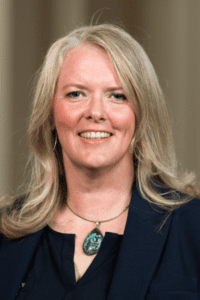
Professor of Psychology & Faculty Ombuds, Literature, Science, and the Arts, Ann Arbor
Dr. Stephanie D. Preston is the head of the Ecological Neuroscience Laboratory and a Professor of Psychology at the University of Michigan. She completed an MA and PhD in Behavioral Neuroscience at the University of California, Berkeley where she studied the biological bases of food hoarding in animals. This was followed by a postdoctoral fellowship in the Department of Neurology at the University of Iowa College of Medicine studying the neural substrates of emotion and decision making. She is interested in the intrinsic effects of emotion on decisions, particularly decisions about resources such as altruistic aid, material goods, money, food, and social support.
Parth Vaishnav
Assistant Professor of Sustainable Systems, School for Environment and Sustainability, Ann Arbor
Parth Vaishnav is an Assistant Professor of Sustainable Systems at the School for Environment and Sustainability (SEAS) at the University of Michigan. Parth is interested in finding ways in which we can stop emitting carbon dioxide and other harmful atmospheric pollutants from transportation and from buildings. There are deep inequalities that exist in people’s access to basic energy services, within the United States and globally. Parth wants his research to help develop technologies and policies that reduce inequalities and prevent new ones from emerging. Solutions that work well in the real world require a good understanding of people’s circumstances, needs, and preferences. This is best done by seeking people’s participation when defining the problem and designing solutions, as well as in implementing them. Parth therefore hopes to get better at engaging communities in his research and in disseminating the results of it. Parth has a PhD from the Department of Engineering and Public Policy at Carnegie Mellon University and an MPhil in Technology Policy from Cambridge University.
Mentor Fellows
María Arquero de Alarcón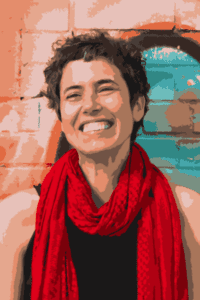
Associate Professor of Architecture and Urban and Regional Planning, Taubman College of Architecture & Urban Planning, Ann Arbor
María Arquero de Alarcón is an associate professor of architecture and urbanism, and the director of the Master of Urban Design at Taubman College University of Michigan. Originally from Spain, she is trained as an architect, landscape architect and urban designer, and she is passionate about teaching and learning, and exploring new partnership and ways of working. You can find some of her work at MAde Studio (www.made-studio.org), a research-based, collaborative design practice that integrates design strategies promoting cultural resilience and environmental adaptation. Through a combination of grant-funded research initiatives, urban design experimentation, and site-specific interventions, her collaborative work advances design approaches integrating the knowledge co-generated with local partners and residents. She is particularly interested in examining the impact of urbanization in the territory, and the role of citizens and community groups stewarding place and devising more just and better futures. In her teaching of graduate design studios, interdisciplinary seminars and workshops, she incorporates multicultural, experiential learning components in partnership with local actors in geographies across the Great Lakes Region, Latin America, India and Europe.
Lisa Du Russel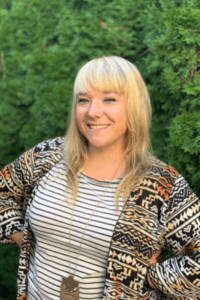
Clinical Assistant Professor of Environment and Sustainability, School for Environment and Sustainability, Ann Arbor
Lisa DuRussel – RLA, LEED AP is an Assistant Professor of Practice within SEAS, the School for Environment and Sustainability at the University of Michigan – Ann Arbor.
As a practicing landscape architect and educator, Lisa draws from 15 years of professional design experience where she has led the design and implementation of award-winning projects that innovate on ecological design. Her practice, Site Science, places focus on research-based design and implementation strategies that integrate deep ecological design principles into functional and experiential landscapes. Through the craft of design and experimentation, Lisa’s work amplifies collaborative action in the ecological realm.
Lisa has held project leader positions with established design firms: West 8 urban design + landscape architecture, Future Green Studio Brooklyn, MNLA New York, and Hoerr Schaudt Landscape Architects Chicago. She currently collaborates with Unknown Studio on green infrastructure initiatives along the Middle Branch in Baltimore.
Her work has been published for the Landscape Architecture Foundation, and in Landscape Architecture Magazine, World Landscape Architecture, and Metropolis. Lisa received her Bachelor of Science in Environmental Policy and her Master of Landscape Architecture from the University of Michigan.
Mustafa Naseem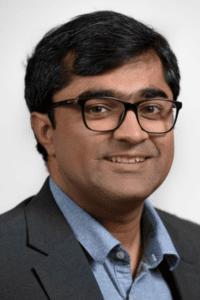
Clinical Assistant Professor, School of Information, Ann Arbor
Mustafa Naseem is a Clinical Assistant Professor of Information at the University of Michigan Ann Arbor. Mustafa’s interests lie at the intersection of technology and poverty. His recent work has focused on the use of information and communication technology (ICT) to improve public service delivery in global health and understand the impacts of gender inequity in patriarchal contexts. Mustafa has taught and led ICT, design, and entrepreneurship programs in six countries in Africa, Asia and North America, and prior to joining Michigan Mustafa was the ICTD Expert-in-Residence at the ATLAS Institute, University of Colorado Boulder. He received his master’s degree from the ATLAS Institute on a Fulbright Scholarship, and was shortlisted among 12 finalist Rolex Awards for Enterprise Young Laureates in 2016.
Sheria Robinson-Lane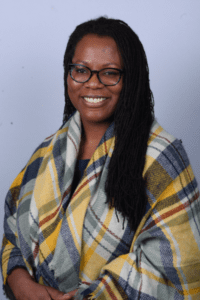
Assistant Professor of Nursing, School of Nursing, Ann Arbor
Sheria G. Robinson-Lane, PhD, MSN, MHA, RN is an Assistant Professor at the University of Michigan School of Nursing in the department of Systems, Populations, and Leadership. Dr. Robinson-Lane’s work aims to reduce health disparities and improve health equity for diverse older adults and family caregivers managing pain and chronic illnesses such as Alzheimer’s disease. Dr. Robinson-Lane’s research addresses the ways in which older adults adapt to changes in health, and particularly how various coping strategies effect health outcomes. Her current work is focused on improving the ability of Black, Latinx and other diverse older adults to successfully age in place through culturally responsive and community engaged care practices along with effective caregiver support. To this end, she has developed and presented numerous presentations and publications on effective clinical practice and the care and symptom management of older adults with chronic disease. Dr. Robinson-Lane completed her PhD in Nursing at Wayne State University in Detroit and a postdoctoral fellowship in Advanced Rehabilitation Research Training at the University of Michigan Medical School.
Teresa Satterfield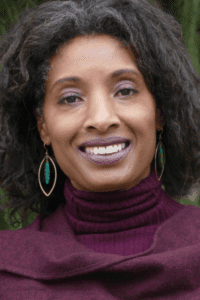
Professor of Romance Linguistics, Literature, Science, and the Arts, Ann Arbor
Teresa Satterfield is a Professor of Romance Linguistics, and a faculty affiliate in Linguistics and the Combined Program of Education and Psychology at the University of Michigan. She studies (1) language and literacy development in bilingual children; (2) complex adaptive systems models that inform language contact and language change phenomena; and (3) the intersection of bilingualism and ethnic-racial identity in children. The focus of Satterfield’s scholarship is the emergence of linguistic knowledge in populations that have not been traditionally represented in mainstream language models. Broader impacts of her research aim to make visible US bilingual experiences, particularly as lived by people of color, to maximize the learning opportunities for bilingual children, and to promote equitable access to educational resources in underserved communities. Satterfield’s research engages with numerous community and academic partners, and has resulted in the construction of an intergenerational, community-based ‘ecosystem’ that is uncovering novel ways to address important educational concerns. In addition to founding and directing the En Nuestra Lengua LIteracy and Culture Project, Satterfield heads the En Nuestra Lengua Lab Group, and directs the ENL Club Lector, a literacy intervention for Spanish-speaking adolescents which leverages technology and provides outlets for Spanish-language maintenance and social support. Satterfield serves on committees and advisory boards aimed at increasing the University’s public engagement mission both locally and internationally.
Sarah Stoddard
Associate Professor of Nursing, School of Nursing, Ann Arbor
Dr. Stoddard‘s research addresses the health of adolescents and emerging adults, with a focus on substance use and violence. In partnership with community organizations and schools, she studies the application of behavioral, family, and ecological approaches to preventing youth violence and substance use among vulnerable populations of youth. Dr. Stoddard is an appointed member of the U.S. Department of Health and Human Services’ Community Preventive Services Task Force, a committee that provides evidence-based recommendations about community preventive services, programs, and other interventions aimed at improving population health.
Fellows
Michelle Bellino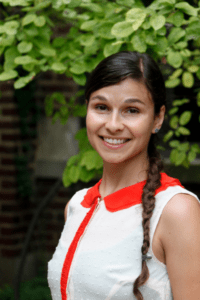
Associate Professor of Education, Marsal Family School of Education, Ann Arbor
Michelle Bellino is an Assistant Professor at the University of Michigan School of Education. Her research centers on the intersections between education and youth civic development, with particular attention paid to contexts impacted by armed conflict and forced displacement. Across diverse settings, she explores how experiences with violence, asylum, and peace and justice processes influence young people’s participation in schools and society, future aspirations, as well as educational access and inclusion. In her work, she traces youth experiences from schools to their homes and communities in order to understand how knowledge and attitudes toward historical (in)justice travel across public and private spaces, as well as between generations. She draws on ethnographic methods and youth participatory action research to ask how young people construct understandings of justice and injustice, while shaping an evolving sense of themselves as local and global civic actors. She has been recognized as a Peace Scholar by the United States Institute of Peace and a Postdoctoral Fellow of the Spencer Foundation. Her book, Youth in Postwar Guatemala won the Council of Anthropology and Education’s Outstanding Book Award in 2018.
Abigail Dumes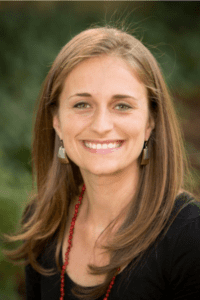
Assistant Professor of Women’s and Gender Studies, Literature, Science, and the Arts, Ann Arbor
Abigail A. Dumes is a medical and cultural anthropologist, and she is an assistant professor in the Department of Women’s and Gender Studies at the University of Michigan. Her first book, Divided Bodies: Lyme Disease, Contested Illness, and Evidence-Based Medicine, was published with Duke University Press in September 2020. Her ongoing research explores the relationship among gender, contested illness, infectious disease, and environmental risk in the United States.
Monica Dus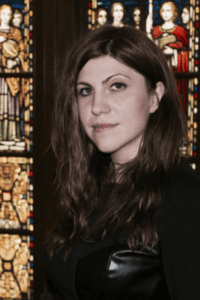
Associate Professor of Molecular, Cellular, and Developmental Biology, Literature, Science, and the Arts, Ann Arbor
Dr Dus has been an assistant professor in MCDB since 2015; she heads a research lab that studies the effects of sugar on the brain, teaching BIO 305 Genetics and MCDB 459 Neuroepigenetics, and is involved in several outreach activities, such as hosting the How to Science Podcast, organizing the Food & Brain workshop with the Museum of Natural History, and mentoring the pre-science undergraduate club FIRST, Future in Research, Science and Teaching.
Ashley Gearhardt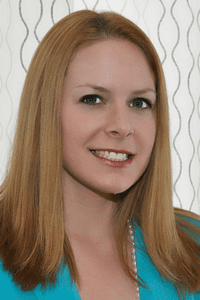
Associate Professor of Psychology, Literature, Science, and the Arts, Ann Arbor
Dr. Ashley Gearhardt is an Associate Professor of Psychology in the Clinical Science area at the University of Michigan. She received her Ph.D. in clinical psychology at Yale University with training on the underpinnings of both excess food and alcohol consumption. Dr. Gearhardt currently investigates the contribution of reward dysfunction (e.g., craving, liking) to eating-related problems across the lifespan. She uses a multi-method approach to explore the neurobiological, psychological, and behavioral factors that contribute to problematic eating behavior. Dr. Gearhardt also investigates the role of addictive processes in compulsive overeating and is the Director of the Food Addiction Science and Treatment Laboratory. Her research has received funding from the National Institute of Health and the American Heart Association. She has published over 100 peer-reviewed articles and her research has been featured on media outlets including the New York Times, ABC News, the Today Show, and Time Magazine.
Annette Joseph-Gabriel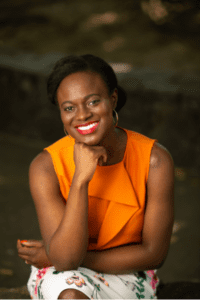
Assistant Professor of French and Francophone Studies, Literature, Science, and the Arts, Ann Arbor
Annette Joseph-Gabriel is an Assistant Professor of French and Francophone Studies. Her research focuses on race, gender, and citizenship in the French-speaking Caribbean, Africa, and France. Her book, Reimagining Liberation: How Black Women Transformed Citizenship in the French Empire (University of Illinois Press, 2020) mines published writings and untapped archives to reveal the anticolonialist endeavors of Black women in the French empire. She has published articles in peer-reviewed journals including Small Axe, Slavery & Abolition, Eighteenth-Century Studies and The French Review, and her public writings have been featured in Al Jazeera, HuffPost, The Conversation US and The Conversation France. She is a recipient of the Carrie Chapman Catt Prize for Research on Women and Politics. She is also the managing editor of Palimpsest: A Journal on Women, Gender, and the Black International and production editor of Women in French Studies.
Wei Lu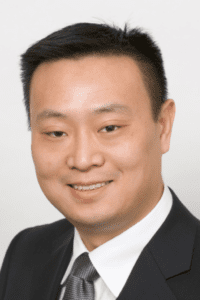
Professor of Mechanical Engineering, College of Engineering, Ann Arbor
Dr. Wei Lu is Professor at the Mechanical Engineering Department, University of Michigan, Ann Arbor. Prof. Lu uses multi-scale and multi-physics modeling and experimental approaches to address emerging challenges in energy and nanomechanics. Examples include mechanical electrochemical processes in Li-ion battery systems, self-assembled nanostructures and their applications, and morphological evolution and properties of nano/micro scale structures. He has over 160 publications in peer-reviewed journals and over 100 presentations and invited talks in international conferences, universities and national labs including Harvard, MIT and Stanford. He also has plenty of publications in conference proceedings, encyclopedias and book chapters. Prof. Lu was the recipient of many awards including the CAREER award by the US National Science Foundation; the Robert J. McGrattan Award by the American Society of Mechanical Engineers; Elected Fellow of the American Society of Mechanical Engineers; U-M’s CoE Ted Kennedy Family Faculty Team Excellence Award, CoE George J. Huebner Jr. Research Excellence Award, Novelis/CoE Distinguished Professor Award, Faculty Recognition Award, Department Achievement Award, Robert M. Caddell Memorial Research Achievement Award; and the Gustus L Larson Memorial Award by American Society of Mechanical Engineers. He was invited to the National Academies Keck Futures Initiative Conference multiple times.
Okeoma Mmeje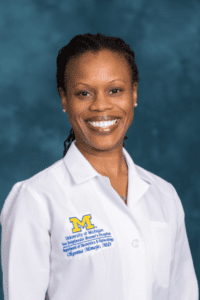
Assistant Professor of Obstetrics and Gynecology, Medical School, Ann Arbor
Dr. Okeoma Mmeje is a fellowship-trained physician-researcher with expertise in reproductive infectious diseases. She has in-depth leadership, organization, project management, and communication skills and expertise. In clinical practice, Dr. Mmeje manages general obstetrics and gynecology conditions, emphasizing recurrent or persistent cases of vaginitis. As a physician-scientist with more than ten years of experience, Dr. Mmeje had led academic teams in implementing and evaluating reproductive health programs to improve access to sexual and reproductive health services for vulnerable and marginalized populations. Dr. Mmeje is also a champion for creating, implementing, and assessing diversity, equity, and inclusion initiatives in academia to foster an environment where all are welcomed, accepted, valued, and supported.
Rafe Neis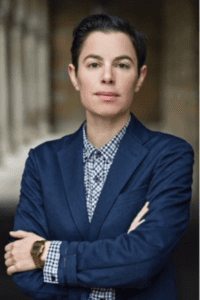
Professor, Literature, Science, and the Arts, Ann Arbor
Rachel Rafael Neis is an associate professor in the department of history and frankel center for Judaic studies and holds the Jean and Samuel Frankel Chair in Rabbinic Literature. Their research, writing, and teaching in ancient Jewish history in Roman Palestine and Persian Mesopotamia and in rabbinic literature focuses on the limits and definitions of humans and animals, norms and variation, and the production of knowledge and access to it. Their award-winning first book was The Sense of Sight in Rabbinic Culture: Jewish Ways of Seeing in Late Antiquity (Cambridge, 2013) and they are currently completing their second book length project, When a Woman Gives Birth to a Raven: Rabbis and the Reproduction of Species in Late Antiquity. An accomplished painter and visual artist, Neis, has in recent years turned to comics and zine-making, and is in the early phases of two projects – Talmud-Zine and Antiqui-Zines – both involving collaborations with scholars and activists and designed to critically engage and diffuse knowledge about premodern sources. (p.s. I don’t have the hires version of my profesh headshot- need to get it from Judaic Studies -so attached something else instead). Happy to use this or one with me in suit).
Sarah Peitzmeier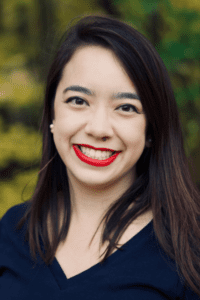
Assistant Professor of Nursing, School of Nursing, Ann Arbor
Sarah Peitzmeier is an Assistant Professor in the School of Nursing. Her research focuses on gender-based violence and sexual health in marginalized populations, particularly LGBTQ communities. Her current research projects include 1) developing a sexual assault prevention intervention for transgender young adults, 2) adapting an existing sexual assault prevention intervention for online delivery in the time of COVID, 3) understanding how to prevent physical harms associated with chest binding in transmasculine individuals, and 4) developing better ways for clinicians and service providers to screen for and address intimate partner violence in trans communities.
Kira Thurman
Associate Professor of Germanic Languages and Literatures, Literature, Science, and the Arts, Ann Arbor
Kira Thurman is an assistant professor of History and Germanic Languages & Literatures. A classically-trained pianist who grew up in Vienna, Austria, Thurman focuses on two areas of research that occasionally converge: the relationship between race and classical music, and Europe’s historical and contemporary relationship with the Black diaspora. Her research on the history of Black musicians in Europe has received numerous fellowships, awards, and honors, including the Berlin Prize from the American Academy in Berlin, a DAAD best article prize from the German Studies Association, and a fellowship at the Institute for Advanced Study at Princeton, New Jersey. Her book, Singing like Germans: Black Musicians in the Land of Bach, Beethoven, and Brahms is forthcoming with Cornell University Press this fall. New Yorker music critic Alex Ross praised it as “”one of the most original and revelatory books to have been written about classical-music history in many years…An instant classic that deserves the widest possible audience.
A firm believer in public engagement, Thurman has written for the New Yorker, New York Times, Frieze Magazine, and The Point, served as a consultant for PBS documentaries and public radio projects, and has worked with different orchestras, opera houses, and music ensembles on programming and public education. Together with colleagues across the United States and Europe and with the support of the German Historical Institute in Washington, D.C., she runs the public history website, blackcentraleurope.com.
Anthony Vanky
Assistant Professor in Urban Planning, Taubman College of Architecture & Urban Planning, Ann Arbor
Anthony Vanky, Ph.D. is an Assistant Professor in Urban Planning at the University of Michigan Taubman College, focusing on the use of technology-based practices in city-making and urban planning. He has previously held teaching appointments at Columbia University and the Massachusetts Institute of Technology (MIT). At MIT, Anthony was a founder and academic programs manager of MIT designX, an academic accelerator dedicated to advancing innovation and entrepreneurship in design, cities, and the built environment. He was also a research lead at the MIT Senseable City Lab, a multidisciplinary research group. At the lab, Anthony additionally served as the Lab’s partner and outreach strategist, where he connected companies’ and governments’ interests in smart cities to the research of the Lab and MIT.
Trained as an urban designer and architect, he has worked on projects across the United States, and his design work has been exhibited widely, including at the Venice Biennale, the Dutch Design Week, the Gwangju Design Biennale, and New Orleans DesCours. Anthony’s own research considers the use of digital data and pervasive sensing technologies in designing, planning, and evaluating urban environments, and spans the disciplines of urban design, urban technologies, innovation studies, and public health. Anthony has widely presented on topics of design, technology, and urbanism including at Harvard University, the British Government, and several dozen private and public organizations. Anthony holds prior degrees from the MIT and Tulane University.
Mentor Fellows
Colleen Conway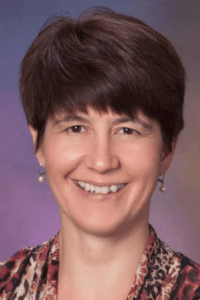
Professor of Music Education , School of Music, Theatre, & Dance, Ann Arbor
Colleen Conway is a professor of music education in the School of Music , Theatre, & Dance. She has varied experience with public engagement mostly focused on partnerships with P-12 student educational collaborators. Her current project involves students (ages 7-18) from the Detroit-based Crescendo Detroit (CD) program participating the Pathways program in which music education students from the SMTD teach music to the CD students two Saturdays a month on campus.
Mark Fitzgerald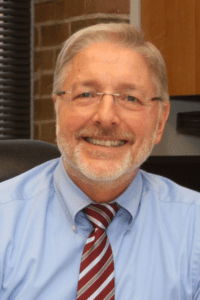
Associate Dean for Community-Based Collaborative Care and Education, School of Dentistry, Ann Arbor
Dr. Mark Fitzgerald is the Associate Dean for Community-Based Collaborative Care and Education and serves as the lead faculty at the School of Dentistry in IPE initiatives. He has been involved in creating IPE/IPC opportunities for students in community health centers, creating IPE opportunities for students in campus-based clinical settings and developing and teaching a campus wide IPE course in team based clinical decision making. Dr. Fitzgerald currently is a member of the U of M IPE Center Executive Committee and co-chair of the U of M campus-wide IPE Curriculum Workgroup.
Terri Friedline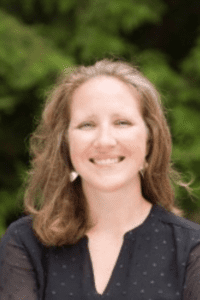
Associate Professor of Social Work, School of Social Work, Ann Arbor
Dr. Friedline’s research focuses on financial system reforms and consumer protections to ensure that people and communities have access to safe and affordable financial products and services. Her research has been covered by national media including The Washington Post, Bloomberg News, CBS News, and TIME. Dr. Friedline is an appointed member of the Consumer Financial Protection Bureau’s (CFPB) Academic Research Council, a committee that advises the agency’s director regarding research on consumer finance.
Andrew Hoffman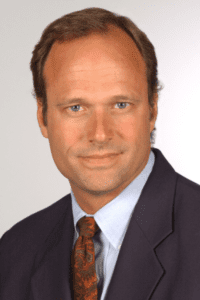
Holcim (US) Inc Professor of Sustainable Enterprise, Ross School of Business and School for Environment and Sustainability, Ann Arbor
Andrew (Andy) Hoffman is the Holcim (US) Professor of Sustainable Enterprise at the University of Michigan; a position that holds joint appointments in the Stephen M. Ross School of Business and the School for Environment and Sustainability.
Ann Chih Lin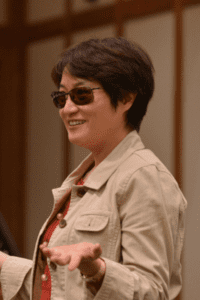
Kenneth G. Lieberthal and Richard H. Rogel Professor of Chinese Studies, Associate Professor of Public Policy Ford School of Public Policy and College of Literature, Science, and the Arts, Ann Arbor
Ann Chih Lin is a political scientist who studies the implementation of public policy, with particular attention to how ordinary people understand the policies that affect their lives. She has studied prisons, poverty, and immigration. Her current projects include a book about Arab American immigrants; a study of ways to reduce prejudice against Muslims; and an examination of U.S. policy towards guestworkers and undocumented immigrants.
Ashley Lucas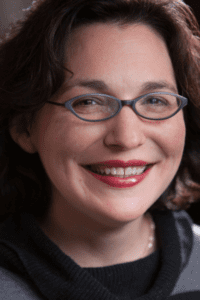
Professor of Theatre & Drama and in the Residential College, Former Director of the Prison Creative Arts Project, School of Music, Theatre, & Dance, Ann Arbor
Ashley Lucas is Associate Professor of Theatre & Drama and the Residential College at the University of Michigan, where she also served for six years as the Director of the Prison Creative Arts Project. She currently is the co-primary investigator on Documenting Criminalization and Confinement—a large-scale, humanities-based archival project. Her book Prison Theatre & the Global Crisis of Incarceration will be released by Bloomsbury in September 2020.
David Michener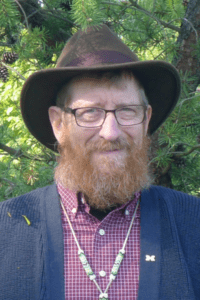
Curator, Matthaei Botanical Gardens and Nichols Arboretum, Ann Arbor
Dr. David C. Michener is the Curator at the University of Michigan Matthaei Botanical Gardens and Nichols Arboretum where his team is internationally known for its work in conservation of historic peonies. Curation also includes stewarding lands, plants, and ecosystems that are homelands for Anishinaabek Tribes forced into exile and diaspora. The best stewardship programs for the climate changes ahead can only come through mutual respect, engagement, and work: a distinctive strand of engaged Tribal / University scholarship deeply embedded in reconciliation.
Kentaro Toyama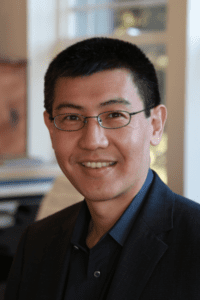
K. Kellogg Professor of Community Information, School of Information, Ann Arbor
Kentaro Toyama is W. K. Kellogg Professor of Community Information at the University of Michigan School of Information, a fellow of the Dalai Lama Center for Ethics and Transformative Values at MIT, and author of Geek Heresy: Rescuing Social Change from the Cult of Technology. Previously, Kentaro taught at Ashesi University in Ghana and co-founded Microsoft Research India, where he did research on the application of information and communication technology to international development.
Fellows
Holly Jarman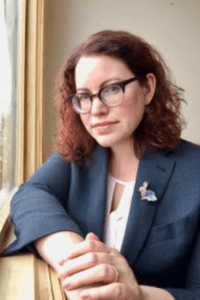
Associate Professor of Health Management and Policy, School of Public Health, Ann Arbor
Holly Jarman, PhD is the John G. Searle Assistant Professor within the Department of Health Management and Policy at the University of Michigan School of Public Health. As a political scientist, she researches the impact of market regulations on health and social policies and is exploring the power of public narratives in policymaking.
Nancy Khalil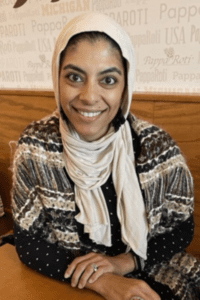
Assistant Professor of American Culture, Literature, Science, and the Arts, Ann Arbor
Nancy A. Khalil recently completed her PhD in anthropology at Harvard University and a postdoctoral fellowship at Yale’s Center on Race, Indigeneity and Transnational Migration. Her research focuses on the politics of American Islam and her dissertation was on the profession of the Imam in America. Her academic work has been supported by several foundations, including the National Science Foundation, Social Science Research Council, MSA National, IIIT, and the Islamic Scholarship Fund.
Stephanie Leiser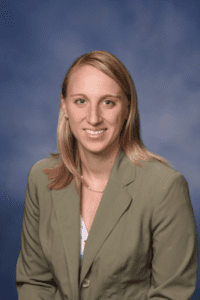
Lecturer IV in Public Policy, Ford School of Public Policy, Ann Arbor
Stephanie’s general areas of interest are in public finance, budgeting, and financial management, and she has particular expertise in state and local tax policy, business taxation and incentives, and local government fiscal health. She is a faculty affiliate at the Center for Local, State, and Urban Policy, where she leads the Michigan Local Government Fiscal Health Project. She is looking forward to finding ways that public engagement can contribute toward developing a deeper understanding of the fiscal health and fiscal challenges of local governments in Michigan.
Roshanak Mehdipanah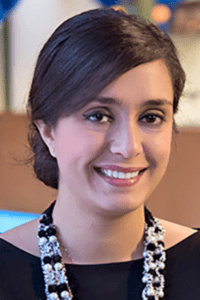
Associate Professor of Health Behavior and Health Education, School of Public Health, Ann Arbor
Roshanak Mehdipanah is an Assistant Professor in the Department of Health Behavior and Health Education in the School of Public Health. She is an urban health researcher with a focus on housing as a determinant of health. She leads several projects in this area including health evaluations of housing policies on affordability and discrimination within the U.S.A. Her work is interdisciplinary, working with researchers from urban planning and community organizations. Dr. Mehdipanah’s work ultimately aims to integrate housing resources into health care settings in the form of community-clinic partnerships that benefit, individuals, hospitals and communities.
Enrique Neblett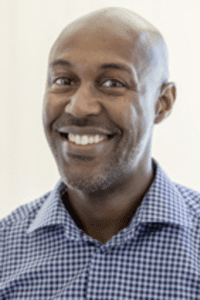
Professor of Health Behavior and Health Education, School of Public Health, Ann Arbor
Enrique Neblett studies how the cultural strengths of Black youth, families, and communities can lessen the impact of racism on health. As a Public Engagement Faculty Fellow, Neblett will discuss research using digital technology, build relationships with community partners, and develop resources to promote healthy family communication about race and address the mental health needs of Detroit’s youth and families.
Natalie Tronson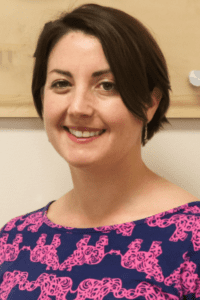
Associate Professor of Psychology, Literature, Science, and the Arts, Ann Arbor
Natalie moved to the USA from Australia in 2000 to pursue her PhD at Yale University; followed by a post-doctoral position at Northwestern University at the Feinberg School of Medicine in Chicago, before joining the faculty in the Psychology Department at the University of Michigan, Ann Arbor in 2012. Natalie’s research focuses on how memory works, and how events including stress, illness, and personal characteristics including sex and gender, influence what is learned, how memory is stored in the brain, and how changes in learning and memory contribute to the development and treatment of psychiatric disorders.
Isaac Wingfield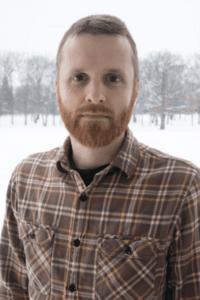
Lecturer IV in the Residential College, Literature, Science, and the Arts, Ann Arbor Originally from Asheville, North Carolina, Isaac Wingfield is a lecturer in the Residential College. He received a Master of Fine Arts in Photography from Rhode Island School of Design and a Bachelor of Science in Technical Photography from Appalachian State University. His prison-based collaborative photography workshop is on Instagram @humanizethenumbers.
We are grateful to our partners for their support in designing and implementing the program.
- Center for Education Design, Evaluation, and Research (CEDER)
- Center for Educational Outreach (CEO)
- Center for Health & Research Transformation (CHRT)
- The Edward Ginsberg Center for Community Service and Learning
- Graham Sustainability Institute
- The Program on Intergroup Relations (IGR)
- U-M Library
- Matthaei Botanical Gardens and Nichols Arboretum
- Michigan Institute for Clinical & Health Research (MICHR)
- Office of the Vice President for Communications (OVPC)
- Office of the Vice President for Government Relations
- Program in Practical Policy Engagement (P3E)
- Poverty Solutions
- Rackham Graduate School – Ann Arbor
- U-M Museum of Art (UMMA)
- U-M Museum of Natural History (UMMNH)
Contact Us
You can reach us at [email protected].
